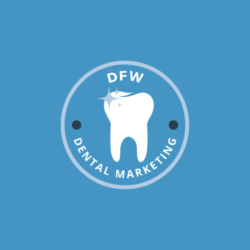Key Takeaways
- Patient Acquisition: AI tools capture 35% more leads through 24/7 website engagement and smart follow-up systems
- Practice Efficiency: Automated systems reduce administrative burden by 40%, allowing staff to focus on patient care
- Revenue Growth: Practices implementing AI see up to 43% increase in new patient appointments and 25% higher retention rates
- Enhanced Patient Experience: AI enables personalized communication and visualizations that improve treatment acceptance
Imagine discovering that your dental practice is losing up to $150,000 annually in missed opportunities—potential patients who visited your website after hours, calls that weren’t properly converted, and existing patients who silently disappeared from your schedule. Now imagine capturing these lost opportunities automatically, 24/7, without adding a single staff member.
This isn’t a hypothetical scenario—it’s the reality for dental practices leveraging artificial intelligence in 2025. While some dental professionals are still debating whether to adopt AI, forward-thinking practices have already transformed their growth trajectory with smart systems that acquire, retain, and delight patients with unprecedented efficiency.
The question isn’t whether AI will change dental practice management—it already has. The real question is: how much longer can your practice afford to be left behind?
The Modern Dental Practice Challenge
In today’s competitive dental landscape, practice owners face unprecedented challenges. Rising operational costs, increasing patient expectations, and a saturated market have created a perfect storm that demands innovation. This is where artificial intelligence in dentistry is no longer just a futuristic concept but a present-day necessity for practice growth.
“AI holds the promise of transforming the way we practice oral health care, pinpoint and treat diseases and conditions, and increase equitable access to care and treatment,” says Dr. William Giannobile, Dean of Harvard School of Dental Medicine.
The Evolving Competitive Landscape
The days when a convenient location and word-of-mouth were enough to sustain a thriving dental practice are long gone. Today’s dental marketplace is digital-first, with patients researching options online and making decisions based on reviews, website experiences, and digital interactions before they ever pick up the phone.
Forward-thinking practices are leveraging dental practice AI solutions to stand out in this crowded digital space. The global dental AI market is expected to reach $36 billion by 2026, with investors pouring $31.5 billion into healthcare AI between 2019-2022. These aren’t just arbitrary figures—they represent a fundamental shift in how successful practices operate.
“AI-powered tools are now helping dentists identify dental decay in patients up to five years earlier,” notes Florian Hillen, founder and CEO of VideaHealth. “The tech revolution is happening” after decades of experimentation with AI in dentistry.
Today’s Patient Expectations
 Modern dental patients expect more than just quality clinical care. They want:
Modern dental patients expect more than just quality clinical care. They want:
- Convenience in scheduling and communication
- Personalization in their treatment plans
- Seamless digital experiences that match other services they use
- Transparent information about procedures and costs
Meeting these expectations manually is nearly impossible. Consider how your patients interact with other services in their lives—from Amazon’s predictive shopping to Netflix’s personalized recommendations. They’ve become accustomed to businesses that anticipate their needs and make their lives easier.
“One of the biggest frustrations in my practice was knowing what my patients needed, but not having the tools or ability to communicate that in a way that inspired my patients to prioritize their dental care,” explains Dr. Edward Zuckerberg, private practice owner and chief dental officer at Keystone Bio.
Today’s FDA-cleared AI products use visual dashboards to show patients precisely where decay is detected, motivating them to pursue care sooner. These AI-powered patient interactions remove barriers to entry while helping dental offices both schedule more appointments and reduce the burden on frontline staff.
AI for dental marketing bridges this expectation gap by enabling practices to deliver personalized communications, convenient scheduling options, and proactive care reminders at scale. This level of service was previously only possible with a massive team of dedicated staff members—now it’s accessible to practices of all sizes through intelligent automation.
Common Growth Obstacles for Dental Practices
Most dental practices face these critical challenges:
- High patient acquisition costs: Traditional marketing methods have diminishing returns as competition increases
- Patient leakage: Practices lose 10-20% of their patient base annually without systematic retention efforts
- Administrative overload: Staff spend valuable time on repetitive tasks instead of patient relationship building
- Data silos: Valuable patient information exists across multiple systems without cohesive insights
Each of these obstacles represents a significant drain on practice resources and potential revenue. What’s particularly frustrating is that solutions to these problems exist within your practice data—but without the right tools to unlock these insights, they remain hidden.
“Running a successful dental practice is about more than just delivering high-quality patient care,” says Stoyan Kenderov, founder and CEO of Wisdom Dental Billing. “Administrative inefficiencies, billing challenges, and revenue cycle management issues can significantly impact a practice’s financial health, leading to burnout, staff turnover, and even practice closure.”
The Technology Gap in Traditional Practices
While technology adoption in clinical dentistry has accelerated, many practices still rely on outdated systems for their business operations. This creates a technology gap that directly impacts growth potential.
Consider a common scenario: A potential patient visits your website after hours, interested in cosmetic procedures. Without AI assistance, that lead might vanish before your office opens the next morning. Similarly, existing patients due for recare might fall through the cracks of manual follow-up processes.
According to a recent survey, 35% of dental practitioners have implemented AI into their clinical practices, with an impressive 77% of them reporting experiencing its benefits. This adoption trend is only accelerating as success stories proliferate.
“The typical dental practice has 70% to 80% overhead—every empty chair isn’t just a missed opportunity, it’s a stark reminder of the cruciality of efficient marketing strategies,” notes a recent industry analysis.
The practices that are thriving in 2025 have closed this technology gap by implementing AI solutions that work 24/7 to capture opportunities, nurture relationships, and optimize operations. Let’s explore how they’re doing it.
AI-Powered New Patient Acquisition
In the competitive dental marketplace, attracting new patients efficiently is crucial for practice growth. AI-powered patient acquisition is transforming how dental practices identify, engage, and convert potential patients into appointments—often at a fraction of the cost of traditional marketing methods.
“AI in dental care extends to advertising and patient acquisition,” explains Adrian Lefler, CEO of My Social Practice. “Artificial intelligence tools can help dentists create content for social media, develop SEO-friendly websites, collect and analyze marketing data, and more.”
Intelligent Conversational Assistants: Converting Website Visitors
Your practice website receives visitors at all hours, but most dental offices are only staffed during business hours. This creates a critical gap in patient conversion. Dental AI chatbots bridge this gap by engaging website visitors 24/7, answering common questions, and facilitating appointment scheduling even when your staff is unavailable.
These intelligent assistants do far more than provide generic responses:
- Qualify leads based on service interest and insurance coverage
- Present personalized treatment information based on visitor queries
- Schedule appointments directly into your practice management system
- Collect pre-appointment information to streamline the intake process
“Implementing a chatbot on a dental website offers several advantages,” notes a digital marketing expert. “These AI-powered interactions not only remove barriers to entry for patients but also help dental offices twofold: they can book more appointments while reducing the burden on frontline staff.”
AI tools boost efficiency and accuracy in patient communications, freeing your team to focus more on patient care than administrative work while minimizing human errors. The result is a more profitable practice with higher conversion rates.
Practices implementing AI website conversion tools report capturing up to 35% more new patient leads from the same website traffic, simply by having an intelligent system available to engage visitors when they’re actively searching for dental services.
Call Analysis and Optimization: Never Miss an Opportunity
 Phone calls remain a primary channel for new patient acquisition, yet research indicates the average dental practice misses or fails to convert 30-40% of incoming opportunity calls. AI call intelligence systems now provide practices with unprecedented insights into this critical communication channel.
Phone calls remain a primary channel for new patient acquisition, yet research indicates the average dental practice misses or fails to convert 30-40% of incoming opportunity calls. AI call intelligence systems now provide practices with unprecedented insights into this critical communication channel.
These systems can:
- Automatically analyze call quality and conversion rates
- Identify missed opportunities and reason codes
- Provide staff coaching based on successful call patterns
- Automatically follow up with potential patients who didn’t schedule
“AI call analysis provides valuable insights for strategic decision-making,” states a dental marketing expert. “These systems assist your front desk team in converting leads into patients by giving them more time and better tools for effective communication.”
Traditional phone systems lack intelligence to analyze why calls don’t convert or automate follow-ups for missed opportunities. AI-driven systems like VoiceStack can track reasons for dropped calls and trigger automated follow-ups. This technology represents a major advancement in patient acquisition.
A modern dental call tracking AI doesn’t just count calls—it intelligently categorizes them, tracks conversion rates by treatment type, and provides actionable insights to improve your team’s performance.
Precision-Targeted Digital Advertising
Generic dental advertising yields increasingly poor returns in today’s competitive market. AI-optimized dental marketing enables practices to deliver highly targeted campaigns to the specific patient segments most likely to need your services.
Before/After: AI Marketing Performance
| Metric | Traditional Marketing | AI-Powered Marketing |
| Cost per new patient | $300-450 | $180-270 |
| Lead-to-patient conversion | 15-20% | 25-35% |
| Return on ad spend | 2.1x | 3.5x |
| Patient lifetime value | $1,200 | $1,800 |
Advanced dental marketing automation platforms can:
- Analyze your current patient base to identify high-value patient profiles
- Target lookalike audiences on social media and search platforms
- Automatically optimize ad spend based on actual appointment conversions
- Personalize advertising content based on viewer demographics and behavior
Practices using AI-driven advertising consistently report 40-60% lower patient acquisition costs compared to traditional campaigns, while attracting patients specifically interested in their most profitable services.
Automated Reputation Management
Online reviews have become one of the most important factors in new patient decision-making. AI reputation management systems help practices generate a consistent stream of positive reviews while monitoring and addressing negative feedback across multiple platforms.
These intelligent systems can:
- Automatically solicit reviews from satisfied patients
- Identify trends in patient feedback for service improvement
- Alert staff to negative reviews requiring immediate attention
- Highlight your most compelling reviews across marketing channels
With automated dental review generation, practices are securing 3-5 times more positive reviews than through manual methods, significantly improving their visibility in local search and patient decision-making.
Success Story: How One Practice Transformed Their New Patient Numbers
 Consider the case of Brightsmile Dental, a three-location practice in the Midwest. Before implementing AI patient acquisition tools, they struggled to maintain growth despite increasing their marketing budget year over year.
Consider the case of Brightsmile Dental, a three-location practice in the Midwest. Before implementing AI patient acquisition tools, they struggled to maintain growth despite increasing their marketing budget year over year.
After implementing a comprehensive dental practice growth AI solution that included intelligent chat, call analysis, and targeted advertising, Brightsmile experienced:
- A 43% increase in new patient appointments within 90 days
- 27% lower cost per acquisition across all marketing channels
- 68% improvement in website visitor-to-appointment conversion
- 52% more Google reviews, improving their visibility in local search
Dental practices leveraging AI technologies report significant ROI improvements, with strategic AI implementations providing valuable call data insights that enable more data-driven business decisions. Brightsmile’s experience mirrors these industry-wide trends.
The practice achieved these results without adding staff or significantly increasing their marketing budget—they simply leveraged AI to optimize their existing resources and capitalize on previously missed opportunities.
Enhancing Patient Retention Through AI
Acquiring new patients is important, but retaining existing ones is even more valuable for sustainable practice growth. AI technologies are revolutionizing how dental practices maintain patient relationships and maximize lifetime value.
Predictive Analytics: Identifying At-Risk Patients Before They Leave
One of the most powerful applications of AI in dental practice management is using predictive analytics to identify patients at risk of leaving the practice before they actually disappear.
AI systems analyze patterns such as:
- Missed or repeatedly rescheduled appointments
- Extended periods without scheduling recommended treatments
- Changes in insurance coverage or financial situations
- Decreased engagement with practice communications
By identifying these risk factors early, practices can implement targeted retention strategies for specific patients rather than sending generic communications to everyone.
Personalized Patient Communication
Modern patients expect personalized experiences in all areas of their lives, including healthcare. AI enables dental practices to deliver customized communications at scale:
- Smart Reactivation: Automatically targeting dormant patients with personalized offers based on their treatment history
- Treatment Plan Reminders: Following up on recommended but unscheduled procedures with educational content specific to that patient’s condition
- Special Occasion Messages: Recognizing birthdays and anniversaries to maintain the human connection
- Health Tips: Sharing relevant oral health information based on each patient’s specific conditions and history
These personalized touchpoints create a sense of ongoing care even between visits, significantly improving retention rates.
Visualization Tools That Improve Treatment Acceptance
AI-powered visualization tools are transforming case presentation and treatment acceptance rates. These technologies allow patients to:
- See accurate simulations of treatment outcomes for cosmetic procedures
- View clear visuals highlighting areas needing attention
- Understand complex treatment plans through interactive 3D models
- Visualize the progression of conditions if left untreated
Practices using these visual AI tools report 30-45% higher treatment plan acceptance rates, particularly for elective procedures and comprehensive treatment plans.
Smart Recare Systems That Keep Chairs Filled
Maintaining a consistent recare schedule is critical for practice profitability and patient health. AI systems optimize this process by:
- Automatically scheduling optimal recare intervals based on patient risk factors
- Sending personalized reminders through patients’ preferred communication channels
- Identifying scheduling opportunities that match both patient availability and practice capacity
- Flagging missed hygiene appointments for immediate follow-up
These intelligent systems ensure fewer patients fall through the cracks, maximizing both production and patient health outcomes.
Streamlining Marketing and Operations
Beyond patient acquisition and retention, AI is transforming the daily operations of dental practices, creating significant efficiency gains and cost savings.
AI-Assisted Content Creation
Creating consistent, engaging content for social media, email marketing, and patient education has traditionally been time-consuming. AI-powered content tools now enable practices to:
- Generate personalized email campaigns based on patient segments
- Create social media content calendars with minimal human input
- Develop educational materials tailored to specific procedures or patient concerns
- Maintain consistent brand messaging across all platforms
These tools allow practices to maintain robust marketing programs without dedicating excessive staff time to content creation.
Optimized Scheduling for Maximum Productivity
AI scheduling systems go beyond basic appointment booking to optimize the entire practice schedule for maximum productivity:
- Automatically grouping similar procedures to minimize room turnover
- Identifying ideal appointment slots for complex procedures when providers are most fresh
- Balancing provider schedules to prevent bottlenecks
- Filling last-minute cancellations with prioritized waiting list patients
Practices utilizing AI scheduling optimization report 15-25% increases in production without extending hours or adding providers.
Intelligent Phone Systems That Convert
Beyond basic call analysis, advanced AI phone systems actually improve conversion rates through:
- Real-time guidance for staff based on caller needs
- Automatic transcription and entry of key information into practice management software
- Smart routing to ensure calls reach the most appropriate team member
- Voice analysis to identify caller emotions and adapt responses accordingly
These systems serve as virtual assistants to front desk staff, enhancing their performance rather than replacing them.
Secure Data Management Made Simple
Managing patient data securely while making it accessible for treatment planning has become increasingly complex. AI systems help practices:
- Automate HIPAA compliance monitoring
- Identify potential security vulnerabilities before they become problems
- Organize clinical information for easy retrieval during patient visits
- Extract actionable insights from practice management data
These capabilities reduce administrative burden while improving data usability for clinical and business decisions.
Marketing ROI Analytics
Understanding marketing performance is critical for practice growth. AI analytics platforms provide:
- Clear attribution of new patients to specific marketing channels
- Lifetime value analysis of patients from different acquisition sources
- Predictive modeling for future marketing investments
- Automated budget optimization across channels
With these insights, practices can make data-driven marketing decisions rather than relying on intuition or vendor promises.
Getting Started with AI in Your Dental Practice
Implementing AI technologies in your dental practice doesn’t have to be overwhelming. Here’s a strategic approach to getting started:

Assessing Your Practice’s Technology Needs
Begin by identifying your biggest pain points and opportunities:
- Audit your current processes: Where do you see inefficiencies or missed opportunities?
- Analyze patient feedback: What are patients saying about their experience with your practice?
- Review key metrics: Which numbers need improvement (e.g., new patient acquisition, treatment acceptance, retention)?
- Evaluate staff challenges: What tasks consume disproportionate staff time?
This assessment will help you prioritize which AI solutions will deliver the most immediate impact.
Evaluating Dental-Specific AI Solutions
When researching AI platforms, focus on those specifically designed for dental practices:
- Request demonstrations with your actual practice data
- Ask for case studies from practices similar to yours
- Confirm integration capabilities with your existing practice management software
- Evaluate both implementation requirements and ongoing support
Dental-specific solutions will require less customization and deliver faster results than generic AI platforms.
Implementation and Staff Training Strategies
Successful AI implementation depends on staff adoption:
- Involve team members in the selection process
- Emphasize how AI will enhance rather than replace their roles
- Provide comprehensive training with real-world scenarios
- Start with one application and expand as team comfort increases
Remember that AI should augment your team’s capabilities, allowing them to focus on the human aspects of patient care that technology cannot replace.
Cost-Benefit Analysis Made Simple
To evaluate the potential return on your AI investment:
- Calculate current costs associated with inefficiencies (e.g., unfilled appointments, manual processes)
- Estimate the value of improved metrics (e.g., additional production from higher treatment acceptance)
- Consider both immediate benefits and long-term advantages
- Factor in the competitive advantage of enhanced patient experience
Most practices find that properly implemented AI solutions pay for themselves within 3-6 months through increased efficiency and production.
The Future Is Now: Embracing AI for Practice Growth
The dental practices thriving in 2025 aren’t necessarily the largest or those with the biggest marketing budgets. They’re the ones leveraging artificial intelligence to work smarter rather than harder—capturing opportunities, creating efficiencies, and delivering exceptional patient experiences at scale.
As AI technology continues to evolve, early adopters will maintain a significant competitive advantage, attracting more new patients while maximizing the lifetime value of their existing patient base. The question isn’t whether AI will transform dental practice management—it’s whether your practice will be a leader or a follower in this transformation.
Frequently Asked Questions: AI in Dental Marketing
What specific AI tools are most beneficial for dental practice marketing?
Answer: The most beneficial AI tools for dental marketing include intelligent chatbots for 24/7 website engagement, call analytics systems to optimize phone conversions, automated review management platforms to build online reputation, predictive analytics for patient retention, and AI-powered content creation tools for consistent social media and email marketing. The ideal approach is to start with tools addressing your biggest pain points—typically lead capture or patient retention—then expand your AI ecosystem as you see results.
Do AI marketing tools require extensive technical knowledge to implement?
Answer: Modern AI marketing tools for dental practices are designed with non-technical users in mind, requiring minimal technical knowledge to implement. Most platforms offer intuitive interfaces, guided setup processes, and dedicated support teams specifically trained in dental practice workflows. The learning curve is typically 2-3 weeks for basic functionality, with many vendors providing implementation services that handle the technical aspects entirely. Staff training is more focused on understanding the strategic application rather than technical operation.
How can we ensure our AI communications maintain our practice’s unique voice?
Answer: To maintain your practice’s unique voice in AI communications, start by documenting your brand voice guidelines and providing specific examples of your preferred tone and messaging to your AI system. Most advanced platforms allow for extensive customization through “training” periods where you can review and refine automated responses. Regularly audit AI-generated content and provide feedback to improve alignment with your brand voice. The most successful implementations combine AI efficiency with human oversight for sensitive or complex patient communications.
What ROI can dental practices typically expect from AI marketing investments?
Answer: Dental practices implementing AI marketing solutions typically see ROI in three phases: immediate operational savings (20-30% reduction in administrative time within 1-2 months), mid-term acquisition improvements (25-40% increase in conversion rates within 3-6 months), and long-term revenue growth (15-25% increase in overall production within 6-12 months). The highest ROI generally comes from implementing AI chatbots (average 300% ROI) and automated patient reactivation systems (average 500% ROI) due to their direct impact on scheduling high-value treatments with minimal human intervention.
How do we balance automated AI marketing with the personal touch patients expect?
Answer: Successfully balancing AI automation with the personal touch involves strategic implementation: use AI for initial engagement, routine communications, and data analysis, while reserving human interaction for relationship-building moments and clinical discussions. The most effective approach is a “hybrid model” where AI handles repetitive tasks (appointment reminders, review requests, initial inquiries) and flags opportunities for personal outreach at critical patient journey touchpoints. Communicate transparently with patients about your use of technology and emphasize how it enables your team to focus more on personal care. Regular patient satisfaction surveys can help you fine-tune this balance for your specific patient base.
Ready to Transform Your Dental Practice with AI? Take Action Today!
Don’t Let Another Patient Slip Through the Cracks
While you’ve been reading this article, how many potential patients have visited your website, called your office, or needed a follow-up that didn’t happen? The practices that will thrive in 2025 aren’t just considering AI—they’re implementing it now and already capturing the opportunities others are missing.
Your AI Advantage Starts with One Simple Step
Schedule your complimentary AI Readiness Assessment at Lucemedia.ai today.
In just 30 minutes, our dental practice growth specialists will:
- Identify your practice’s specific AI opportunities
- Calculate your potential ROI from implementing smart solutions
- Create a customized AI implementation roadmap
- Show you real examples of success from practices like yours
The Competitive Gap Is Widening Daily
Every week you delay is another week your competitors are leveraging AI to attract and retain the patients that could be choosing your practice instead. The most successful dental practices of 2025 aren’t necessarily the largest—they’re the ones embracing intelligent automation to deliver exceptional experiences efficiently.
BOOK YOUR FREE AI CONSULTATION NOW →
No technical knowledge required. No obligation. Just actionable insights to help your practice thrive in the AI-enhanced future that’s already here.
“The best time to implement AI in your dental practice was a year ago. The second best time is today.”
Join the Conversation: AI and Your Dental Practice
We’d love to hear your thoughts and experiences with AI in your dental practice. Your insights might help other practitioners on their AI journey!
Share Your Perspective
- What’s your biggest challenge in attracting and retaining dental patients? How do you think AI could help address this?
- Have you implemented any AI tools in your dental practice? If so, what results have you seen so far?
- What aspects of dental practice management do you think would benefit most from AI automation in your specific situation?
- What concerns or hesitations do you have about implementing AI in your dental practice?
- Which feature of AI for dental practices surprised you most from this article?
Let’s Continue the Conversation
Your experiences matter to our community of dental professionals. Share your thoughts in the comments below, or if you’ve had remarkable success with AI implementation, we’d love to feature your practice in an upcoming case study.
Don’t forget to subscribe to our newsletter for more insights on leveraging technology for dental practice growth, and share this article with colleagues who might benefit from this information.

